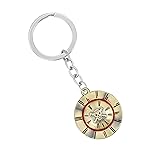All Categories
*Price and Stocks may change without prior notice
*Packaging of actual item may differ from photo shown
- Electrical items MAY be 110 volts.
- 7 Day Return Policy
- All products are genuine and original








About My So-Called Punk
Product Description When it began, punk was an underground revolution that raged against the mainstream; now punk is the mainstream. Tracing the origins of Grammy-winning icons Green Day and the triumphant resurgence of neo-punk legends Bad Religion through MTV's embrace of pop-punk bands like Yellowcard, music journalist Matt Diehl explores the history of new punk, exposing how this once cult sound became a blockbuster commercial phenomenon. Diehl follows the history and controversy behind neo-punk―from the Offspring's move from a respected indie label to a major, to multi-platinum bands Good Charlotte and Simple Plan's unrepentant commercial success, through the survival of genre iconoclasts the Distillers and the rise of "emo" superstars like Fall Out Boy. My So-Called Punk picks up where bestselling authors Legs McNeil and Jon Savage left off, conveying how punk went from the Sex Pistol's "Anarchy in the U.K." to anarchy in the O.C. via the Warped Tour. Defining the sound of today's punk, telling the stories behind the bands that have brought it to the masses and discussing the volatile tension between the culture's old and new factions, My So-Called Punk is the go-to book for a new generation of punk rock fans. From Publishers Weekly In this energetic survey of current trends in punk rock, journalist and music critic Diehl ( Notorious C.O.P.) delivers a knowledgeable and sympathetic overview of the current "neo-punk" bands that achieved success with "the pop music mainstream in the mid-1990s," from big names such as the Offspring and Rancid to lesser-known artists such as Brody Dalle. He nails the key musical reason for the megapopularity of neo-punk band Green Day: while they "trafficked in three-chord minimalism, unlike many of their punk peers, they maintained a keen sense for imbuing those three chords with classic pop song structure and melody." But as a fan of punk music since its heyday in 1977, Diehl is also able to explain the various "vital subsets of the already subcultural punk experience." He keenly reports on how the age-old conflict between authenticity and commercial success has become a key issue in all parts of the neo-punk scene, from resolutely "indie" labels like Epitaph and Dischord to the popular Vans Warped Tour's "blending of the mainstream and the underground." Diehl convincingly argues that "[e]ven in its most crass, commercial state, Punk, Inc. offers more integrity and authenticity than anything comparable on the pure pop side." (Apr.) Copyright © Reed Business Information, a division of Reed Elsevier Inc. All rights reserved. From Booklist Diehl limns the bands who nominally carry forward the colors of the Sex Pistols, Clash, and Ramones in highly readable fashion. Just as every rebellious generation rediscovers Rimbaud, so does every revolutionary pop-music genre eventually deliquesce into slushy mainstream commercial success. According to Diehl, just such success has altered what punk means and how it's expressed. A punker himself in the seventies, Diehl fondly recalls when Patti Smith "reinvented the androgynous cock-rock sex symbol epitomized by Mick Jagger and Jim Morrison in her own persona . . . that reeked of Rimbaud." Punk rock was never homogeneous--what did Sex Pistols and Talking Heads share?--and since it became profitable, he says, it's even harder to define. Diehl finds value and even remnants of proto-punk's DIY ethos in today's punk bands, be they modern-day thrashers or hypersensitive emo practitioners. An essential part of the story of an ongoing movement, Diehl's book provokes lots of interesting questions. So what if he doesn't have all the answers? Mike Tribby Copyright © American Library Association. All rights reserved About the Author Matt Diehl is a music journalist. His work has appeared in Rolling Stone, The New York Times, The Washington Post, GQ, VIBE, Spin, Blender and many other publications. He served as the music columnist for Elle for four yea




 (2)
(2)






















